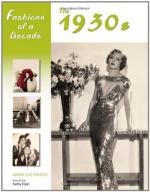|
This section contains 198 words (approx. 1 page at 300 words per page) |

|
These same outlaws inspired a new war on crime. In the 1920s Americans had displayed a rather surprising tolerance for criminals, particularly those involved in the bootlegger's trade. In an age when the consumption of alcohol had become a symbol of independence and sophistication, the escapades of the bootlegger, whether acting alone or in a gang, offered an exciting form of entertainment. Even when the gangs engaged in the most violent behavior, the high drama they afforded seemed just enough removed from the lives of ordinary citizens to raise few alarms. That sense of security or confidence began to change after the collapse of the nation's economy in 1929. Wealth and power, the prestige symbols of the Roaring Twenties, gradually came to signify all that had become wrong with society. Lawlessness was now seen as evidence of weakened moral values and failing public order. But...
|
This section contains 198 words (approx. 1 page at 300 words per page) |

|




